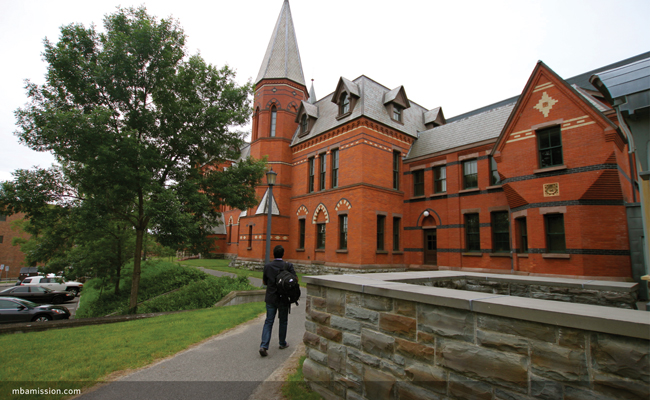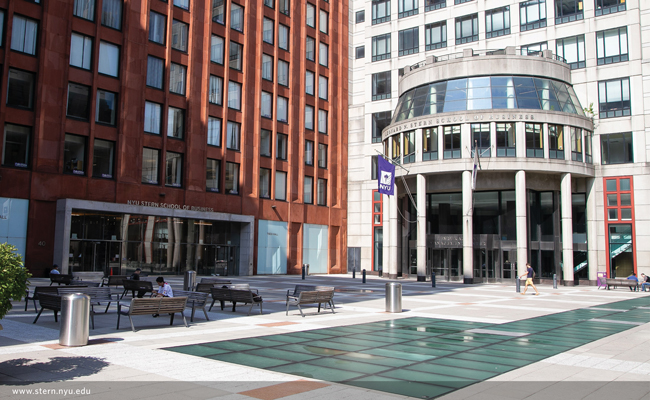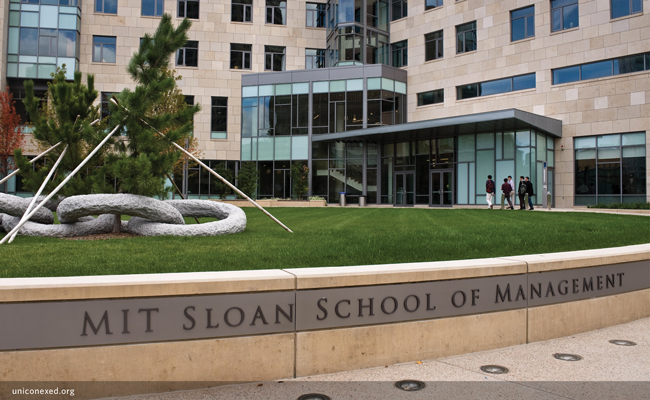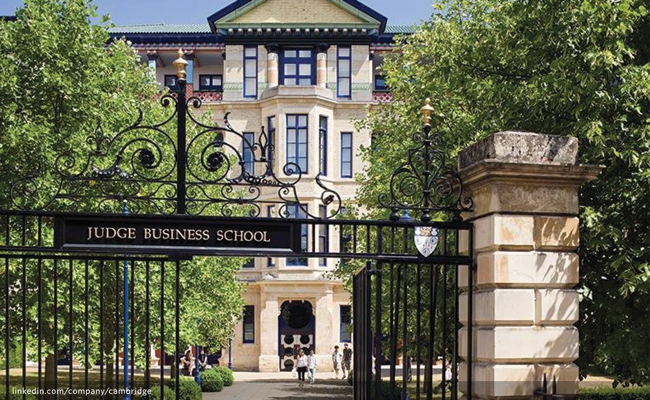Whether you daydream about starting your own company or working for someone else’s, an M.B.A. degree may be the ticket to a career in financial technology, according to FindMBA, a global online M.B.A. directory.
“Everyone from banks to money managers and all firms in-between are scrambling to make sense of fintech [and] how it will impact or disrupt their business model,” FindMBA said on its website. “That means demand for both talent and education is extremely high. MBAs in fintech provide both, and many [colleges] have dedicated fintech courses written into the syllabus.”
“Artificial intelligence is a game-changer in financial services ... creating a huge demand for students with finance and tech skills,” Zach Harris, co-founder and president of CalPolyFinTech (CPF), a fintech M.B.A. program affiliated with Orfalea College of Business and Cal Poly College of Engineering, wrote in a recent blog post.
Harris went to say that because fintech companies, powered by innovations within artificial intelligence, were transforming processes, products, services, and business models in the financial world, the roles of the finance worker are drastically changing as well, as are the recruiting needs of companies hiring business students.
“The finance and business workforce of the future will look very different than it does today due to fintech, and business schools must learn to adapt for students to stay competitive in a data-driven world,” he said.
Here, in no particular order or ranking, are FindMBA’s 10 top MBA concentrations in FinTech for 2020:
Cornell University – Samuel Curtis Johnson Graduate School of Management, Ithaca, N.Y.
This Ivy League school has designed its M.B.A. fintech concentration around practical experience in order to prepare students for careers in finance, technology or entrepreneurship, according to FindMBA. At the conclusion of their course, students partiicpate in a business plan pitch competition by presenting their venture ideas to a panel of professional venture capitalists.

NYU Stern School of Business, New York University, New York City.
The Stern School was the first business school in the nation to offer a bitcoin course back in 2014. Two years later, it became the first in the nation to offer a fullfledged M.B.A. concentration in fintech. Courses focus on digital currencies; robo-advisors and systemic trading; entrepreneurial finance; and risk management.

MIT Sloan School of Management, Massachusetts Institute of Technology, Cambridge, Mass.
The Sloan School of Management launched its M.B.A. “FinTech Ventures” course back in 2015. During the seven-week program, students explore consumer finance, payments, trading and cryptocurrencies, then develop team-based business plans for their own fintech solutions, which they pitch in a school competition.

Stanford University – Stanford Graduate School of Business (GSB), Stanford, Calif.
In 2017, Stanford GSB took the fintech plunge by launching an M.B.A. elective on innovating for financial inclusion through a collaboration with the Center for Financial Services Innovation. Teams of students develop tech solutions to improve underserved community access to financial products, such as Oportun, which helps applicants with no credit history get loans.

Duke University Fuqua School of Business, Durham, N.C.
An early trailblazer in the fintech education area, Duke’s Fuqua School of Business launched a cryptocurrencies course back in 2014. The cryptocurrencies course now offers graduate business students instruction on how to build their own crypto start-up.

University of Cambridge – Judge Business School, Cambridge, U.K.
The Entrepreneurship Centre at Cambridge Judge Business School in the United Kingdom offers its students a taste of the real world in the person of its director, Catherine Wines, co-founder of WorldRemit, an online money transfer company.

Columbia Business School (CBS), Columbia University, New York City.
This Ivy League school offers students 22 fintech courses as part of its M.B.A. program, which includes data analytics and coding; “quant” finance; and blockchain, digital tokens and cryptocurrencies. However, CBS’s big draw is a student-run fintech club, which also attracts students from Columbia’s engineering and data science departments.

University of California, Berkeley – Haas School of Business, Berkeley, Calif.
Located near Silicon Valley, Haas offers a fintech class that gives graduate students an in-depth overview of the industry, ranging from payments to artificial intelligence and lending. The course also focuses on entrepreneurship. Outside the classroom, Haas graduate students can hone their skills by joining a fintech club or go on the school’s organized outings to fintech companies in the Valley.

University of Southern California (USC) – Marshall School of Business, Los Angeles.
At USC’s Marshall School of Business, one popular course focuses on how financial technology was disrupting traditional finance. The course draws top guest speakers from companies such as PayPal to discuss real-life applications instead of theory.

Imperial College Business School, London, U.K.
Students here can take an M.B.A. finance elective that includes a fintech module focusing on new technologies disrupting traditional banking markets, or they can collaborate with other professionals at the college's Center for Global Finance and Technology, which produces research on blockchain, high-frequency trading and other areas critical to modern finance.
